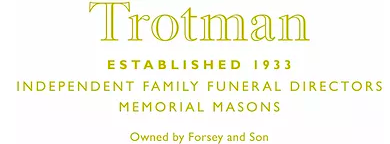Registration

The UK Government requires that all deaths are registered within the sub-district where the death occurred. Depending upon the circumstances of the death you may not have to attend the Registrar. The Government website is a useful source of information for the entire process and can be found HERE.
If the Coroner is not involved, the death must be registered within 5 days (8 days in Scotland). Please be aware that this includes weekends and bank holidays. To book an appointment at your local Registrar, click HERE.
If the Coroner is involved it could be due to a number of reasons, namely: the cause of death is unknown, the death was violent or unnatural or the death was sudden and unexplained. For a full list of reasons the Coroner might be involved, please see the Government website HERE.
The Coroner may then take a number of courses of action:
- If the Coroner decides that the cause of death is clear, the usual doctor will sign the Medical Certificate and you can attend the Registrar in accordance with the instructions above.
- If the Coroner decides that a post-mortem examination is necessary to further explore the circumstances of death, this will occur at the earliest possible time following the death. The result will then be either of the following:
- If there is to be no further examinations following the post-mortem, there will be no Medical Certificate to collect, but you will attend the Registrar in accordance with the instructions above.
- If there is to be an inquest into the cause of death, the death cannot be registered until after the inquest. You will not need to attend the Registrar in person, as this will be done after the inquest by the Coroner.
How to register
Before phoning the Registrar, you will need to ensure that the Doctor’s Cause of Death Certificate (sometimes referred to as the Medical Certificate) has been forwarded by the surgery or hospital to the Registrar’s Office. Once you have ensured this has happened, you can then book an appointment to attend your local Registrar’s Office.
Once you have made an appointment at the Registrar, you will need to take with you the following documents / information:
- The Medical Card
- Birth and / or Marriage Certificate
- Passport
- Driving Licence
- Details of any Government benefits received
- Full name and surname of the deceased
- Usual address of the deceased
- Date and place of death
- Date and place of birth
- Occupation and marital status
- National Insurance number
The items in bold above are essential to the Registrar, the other items are non-essential, but as part of the Tell Us Once service, the Government will be able to cancel them for you.
The Registrar will issue you with:
- Certified Copies of the Entry in the Register (sometimes referred to as Death Certificates) – these are Certificates that need to be provided to Banks, Building Societies, Insurance Companies etc. belonging to the deceased.
- Certificate of Registration (sometimes referred to as the White Certificate for the Department of Work and Pensions) – the Registrar will most likely retain this and send to the DWP themselves.
- The Registrar’s Certificate for Burial or Cremation (sometimes referred to as the Green Certificate) – this will need to be handed to the Funeral Director immediately following registration
Tell Us Once
The Tell Us Once service is a Government initiative that allows people to report a death a number of Government details in one go. The facility means that the administration burden following the death of a loved one is somewhat reduced and streamlined. The service covers the following departments: Her Majesty’s Revenue and Customs (HMRC), Department for Work and Pensions, Public Sector / Armed Forces Pension Schemes, Passport Office, Local Council and Driver and Vehicle Licensing Agency (DVLA).
When you attend the Registrar, they will give you the contact details and provide you with a reference number to use ONLINE.
To use the service you will need the details of the person that has died including their date of birth, National Insurance number, driving licence number and passport number. You will also need specific information on benefits / pensions or local authority services like blue badges that you wish to cancel. You will also need contact details for the next of kin and the name and address of any surviving spouse or civil partner.
